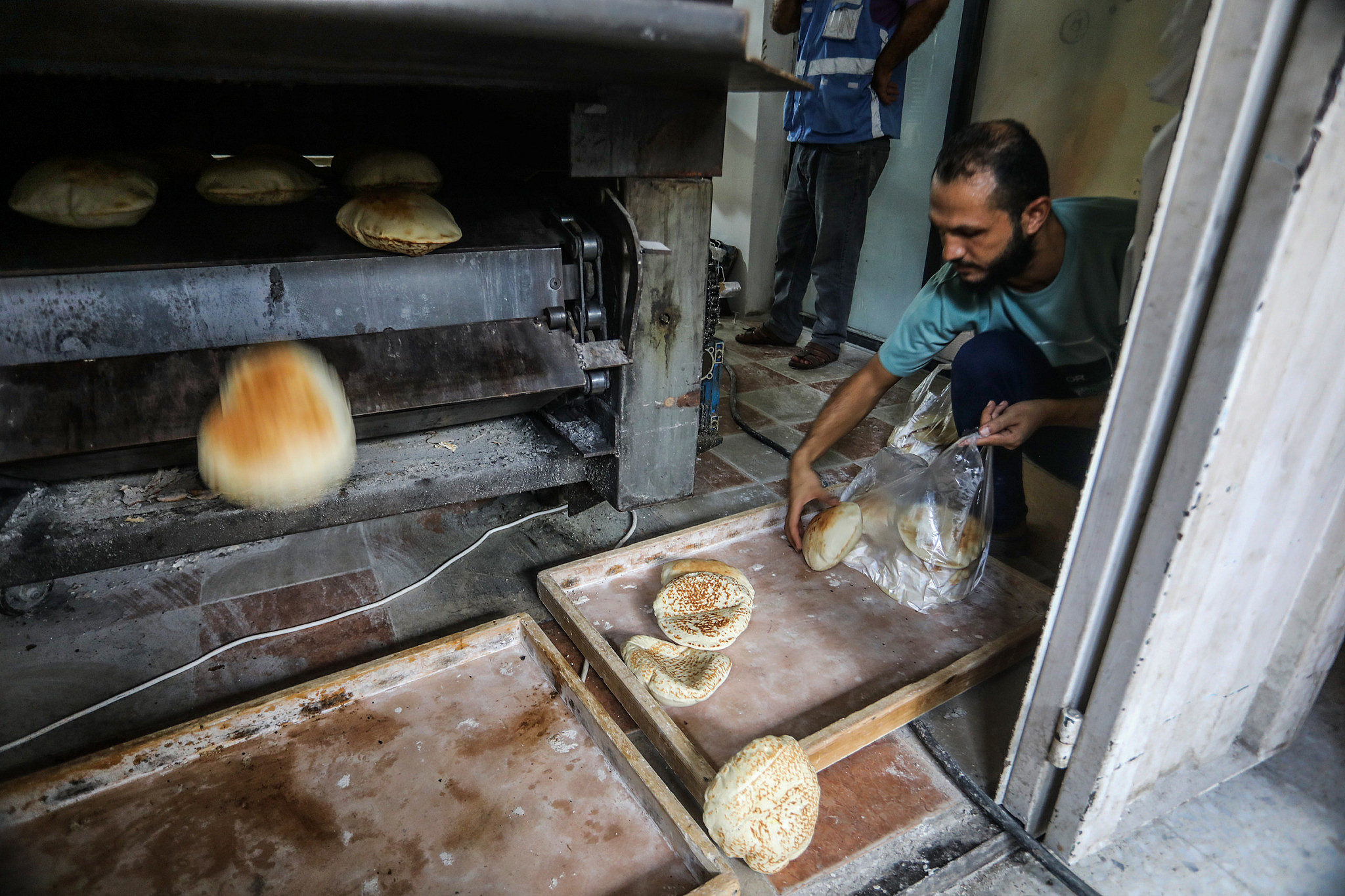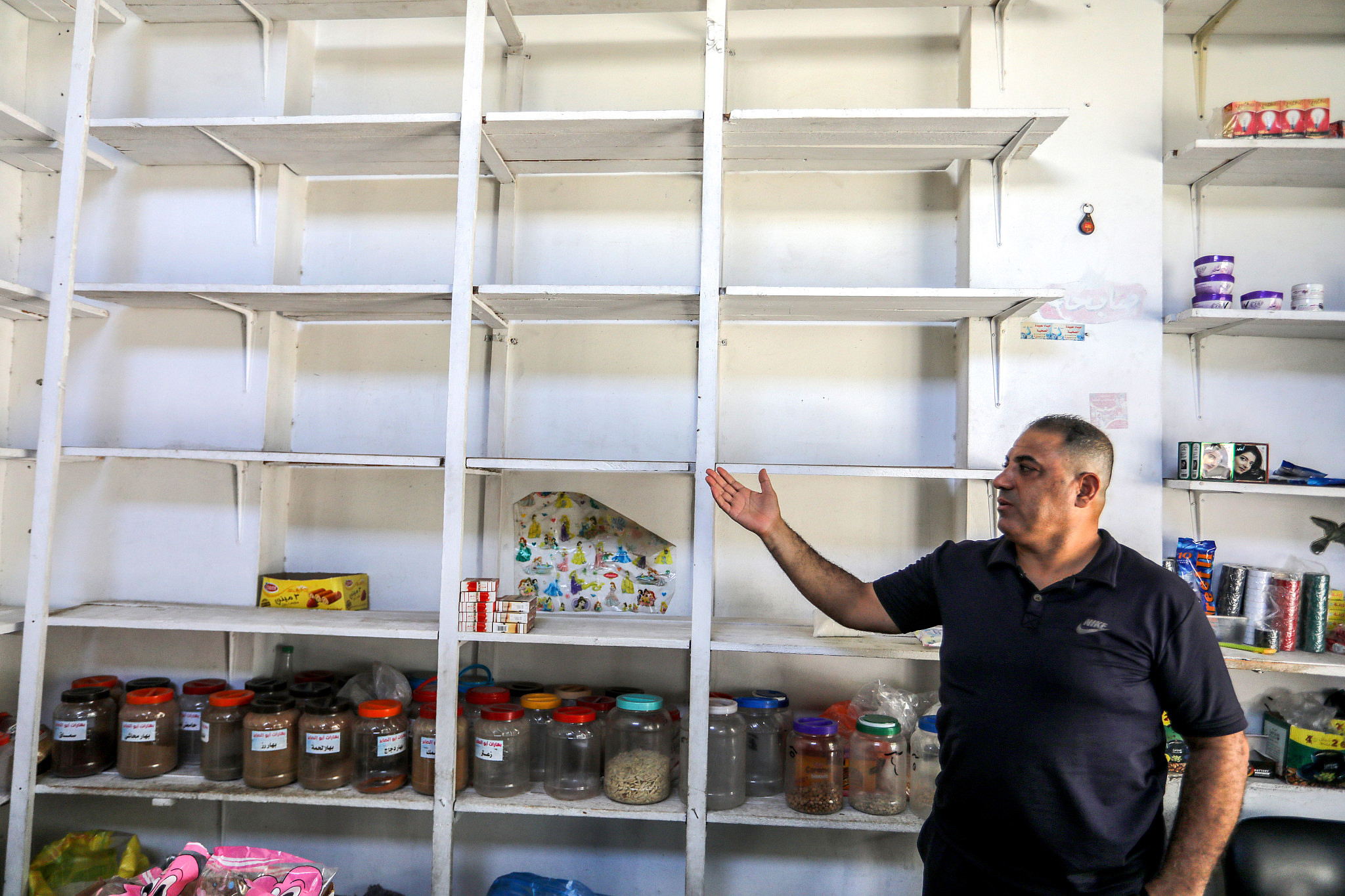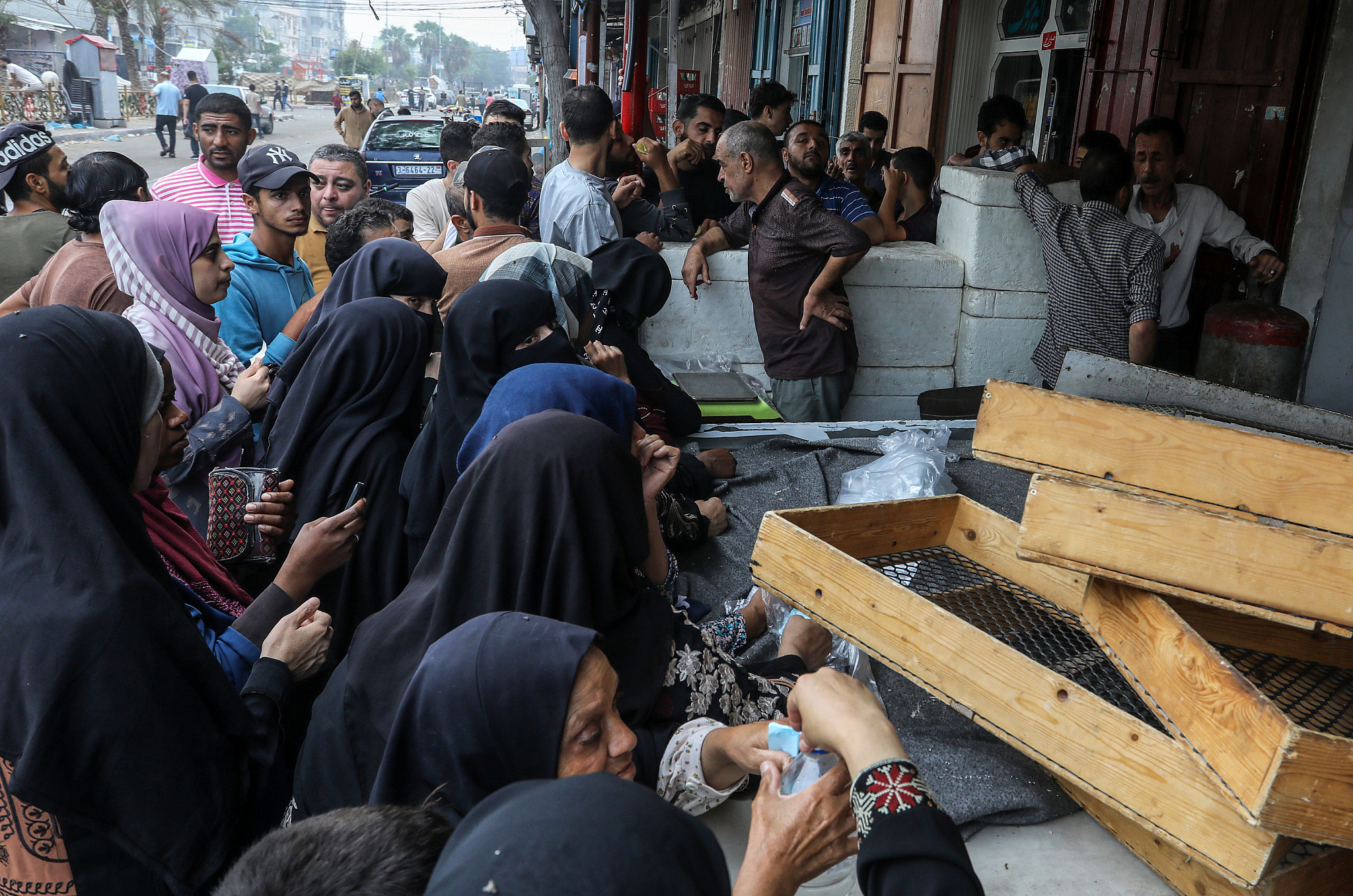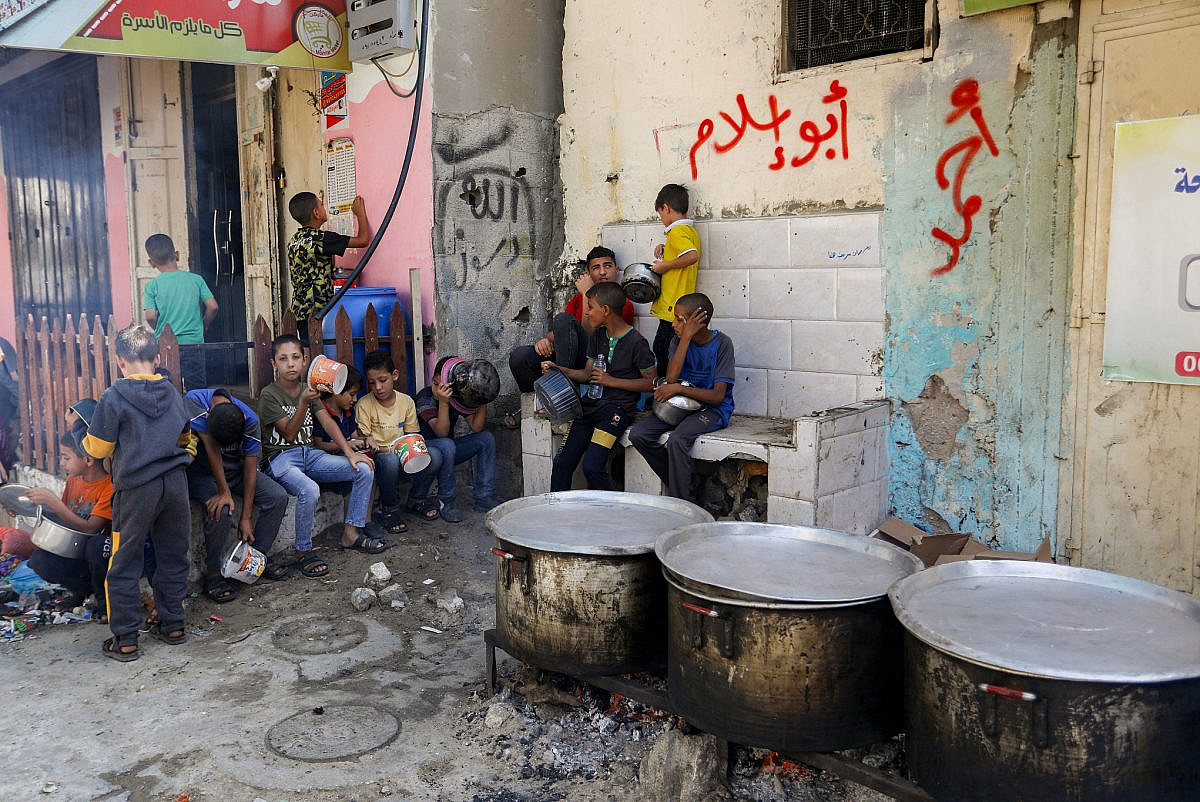With Israel’s large-scale military offensive on the Gaza Strip entering its second month, Palestinians across the besieged territory are suffering from an alarming food and water crisis. Many residents fear that Israel is actively using starvation as a weapon of war and collective punishment following the October 7 attack.
Despite declarations from Israeli and foreign officials that some humanitarian aid would be allowed into Gaza, the few convoys that have entered from Egypt through the Rafah Crossing in the south have barely helped to alleviate the Strip’s hunger crisis. The Karem Abu Salem/Kerem Shalom Crossing, Israel’s main commercial checkpoint, has remained completely shut.
Before the outbreak of the war, according to an official at the Palestinian Economy Ministry, an estimated 500 trucks loaded with supplies entered Gaza on a daily basis. In the past month, with prolonged closures amid the heightened siege and assault, that number has reduced to only about 20 trucks a day, the official said. And together with a lack of fuel and the threat of dangerous journeys due to the bombings, it has become almost impossible to transport basic goods across the territory.
The resulting food shortage has caused massive lines to form outside surviving bakeries, such as the Ajour bakery in Al-Tuffah neighborhood of Gaza City, in the northern part of the Strip. “I have been waiting here since 3 a.m.,” Marwan Al-Shawa, 56, told me. “My sons and I came to get enough bread for our family. The daily ration for each person isn’t enough for a breakfast for a small family. Now even a small house is full of displaced families, requiring double the amount of food allowed. I sometimes wait five hours for my turn, and sometimes they’re out of bread by the time I get there.”

An analysis of UN data conducted by the international aid organization Oxfam revealed that just 2 percent of the food supply that had been scheduled to be delivered to Gaza since the start of the war, when Israel further tightened its 16-year blockade, has actually arrived in the Strip. As such, the siege is effectively starving 2.2 million people.
Euro-Med Human Rights Monitor similarly reported that obtaining bread in Gaza has become an existential challenge, especially since the Strip’s sole flour mill cannot grind enough wheat because of the lack of electricity. Since October 7, at least 11 Palestinian bakeries have been bombed and destroyed, and those that remain in operation are facing shortages of fuel and flour.
“I feel ashamed to walk in the streets with bread, water, or food,” said Hamza Salha, 22, from Gaza City. “Yesterday, I was walking with a few loaves of bread; God knows I got them after a long struggle. An elderly woman saw me and begged, ‘Please give me bread for my children. I swear I haven’t eaten anything for two days.’ If this situation continues for just one more week, we will have to eat the leaves of trees.”

‘The fear of airstrikes has become secondary’
Gaza’s residents are facing similar challenges in trying to get water, both for drinking and other basic needs. “There is no water that can be pumped into pipes, or drawn from wells, or distributed to households,” Saeb Laqan, an official from the Khan Younis municipality, told the media. “We are facing a humanitarian catastrophe if the world does not intervene.”
Basel, a Palestinian resident and father, echoed that growing danger. “To get a liter of drinking water is becoming impossible,” he said. “Every day, we are suffering and struggling to survive. I am struggling for my children.
“Life in Gaza has become divided into queues for bread and water,” Basel continued. “Everything you need is in queues. Even to get non-drinkable water, you have to wait and call the water distributor a few days in advance, and sometimes they do not answer you.”
Families who have been displaced by the war are particularly suffering from the disasters. “We have children who cannot bear these conditions,” said a mother who has been displaced to Al-Bahrain school in the Tel al-Hawa neighborhood in Gaza City, who asked to remain anonymous. “For more than ten days, I have not been able to provide milk for my child, and most of the humanitarian aid only goes to the people in the south. I don’t know what to worry about most — my home, my children, or myself.”

Younes Al-Halak, a Gaza City resident who was displaced to the southern city of Rafah, said that the situation in both the north and the south were unmanageable. “All the bakeries in Gaza City are currently closed, with no availability of flour or vegetables, and the water is salty,” he said. “People rely on whatever rice remains. With the displacement of residents, the southern region is now grappling with overcrowding and an inability to meet people’s needs.
The situation in the south, Al-Halak continued, “is terrifying. There are no open supermarkets or stores or any food items. There are some vegetables available, but they are scarce and will run out in the coming days.”
Most read on +972
Indeed, Israel’s military campaign is destroying every aspect of daily life in Gaza — including its infrastructure, economy, agriculture, and supply chains. Swamped by the unfathomable crisis, Palestinians are struggling to get by, along with enduring constant airstrikes, a collapsing health care system, and no safe zones to shelter in. At least 11,000 Palestinians in Gaza, including 4,600 children, have already been reported killed so far in the past month, and thousands more have been injured. And without access to basic necessities, the lives of countless more children and families are under threat.
“All I fear now is watching my children die of hunger and thirst,” said a Palestinian resident of the Sheja’iya neighborhood of Gaza City. “The fear of Israeli airstrikes has become secondary for us. I wish that my children and I could be hit by an airstrike instead of the slow death from the lack of food. At least if we were struck by a plane, I wouldn’t mourn my children, and I would die with them. But now, in the face of food shortages, I fear the day when I will find my children dying from starvation, and I can’t save them.”




